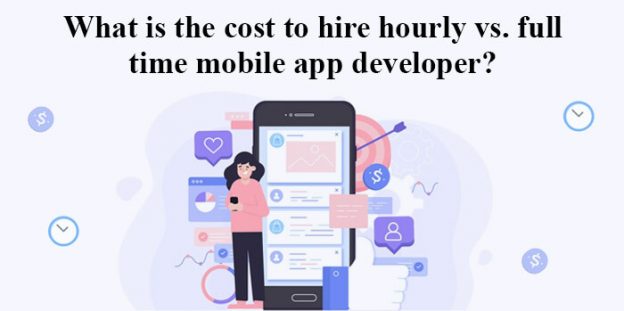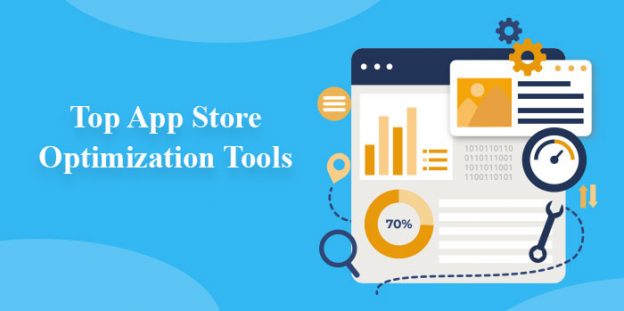Major Cross-Platform Mobile App Development Tools Guide 2023

Do you know what tools are used for mobile app development? What are some of the top ways to develop mobile apps? Do I need to hire a mobile app development company in the USA for my company’s mobile app development? These are some common questions companies ask for mobile app development. You may face the same issues with mobile app development for your company. Stay calm about mobile app development. We have discussed all mobile app development and using mobile app development tools. Continue reading blogs, and you will get the solution you need for your company.
Since the advancement of technology, our smartphones have seen a boom in the number of apps. With the increase in the demand for apps, developers have started using various methods to build a mobile app and one of those methods is “Cross-platform development”. Basically, it is the practice of developing software products or services for multiple platforms. The market of mobile apps is expected to generate more than $420 billion in 2023. And the expected growth for the mobile app development market is $542.80 billion by the end of 2026.
Check Out the Cross-Platform Mobile Development Tools 2023
1. Xamarin:
This Microsoft-owned cross-platform mobile app development platform “Xamarin” allows developers to develop apps. All the major mobile platforms like iOS, Android, and Windows are included in it.
2. PhoneGap:
Apache Cordova, formerly known as “PhoneGap” is one of the best cross-platform app development brands which features a native user interface across platforms, native API access, and native performance. PhoneGap allows developers to develop apps for all major mobile platforms such as iOS, Android, and Windows Mobile just like Xamarin. Some of the top brands including FOX Sports channel and UPS used PhoneGap cross-platform to build an app. Their apps run across all major mobile platforms.
3. Sencha:
This cross-platform mobile app development brand is based on web standards such as HTML5, CSS3, and JavaScript. The goal of Sencha Touch is to facilitate quick and easy development of HTML5-based mobile apps which run on Android, iOS, and Tizen Blackberry devices, simultaneously allowing a native look and feel to the apps.
4. Appcelerator Titanium:
This open-source framework allows the creation of native mobile apps on platforms including iOS, Android, and Windows UWP from a single JavaScript codebase.
5. Kony:
Another mobile app development platform used for the creation of a native and cross-platform mobile app for Android, BlackBerry, iOS, and Windows devices. Kony offers a wide range of tools as part of its enterprise mobility platform and its motive is to help businesses create apps from a single codebase.
6. Alpha Anywhere:
Alpha Anywhere is the low-code app development platform for the rapid development, distribution, and deployment of mobile and web apps on devices like iOS, Android, and Windows. It is a complete front- and back-end framework. Alpha Anywhere helps in building a business app from scratch and combines data with already existing systems of record and workflows. It helps in protecting corporate data.
7. RedHat:
RedHat is a cross-platform mobile app development framework that speeds up the development, integration, deployment, and management of mobile apps for businesses.
8. RhoMobile:
RhoMobile Suite is an open-source framework based on Rhodes. Basically, RhoMobile Suite is a group of development tools for creating data-centric, cross-platform, native mobile consumer and enterprise applications. This framework use web technologies, such as CSS3, HTML5, JavaScript, and Ruby.
Other Editors and Integrated Development Environment (IDE)
Consisting of a source code editor, build automation tools, and a debugger, the software application named “Integrated Development Environment” (IDE) offers all the services to computer programmers for software development. Mentioned below are the mobile app development platforms which are easy to understand and create amazing apps. If you are looking for an IDE or any other app editor then read below!
1. IntelliJ IDEA:
Developed by JetBrains, the IDE, “IntelliJ IDEA” is written in Java for developing computer software and is available as an Apache 2 Licensed community edition. IntelliJ IDEA can be also used for commercial development.
2. Microsoft Visual Studio:
“Microsoft Visual Studio” is an Integrated Development Environment developed by Microsoft Corporation, which is used to develop computer programs. Not just this, but Visual Studio also helps in developing websites, web apps, web services, and mobile apps.
3. Cocos2D:
This open-source software framework is used to build games, apps, and even GUI-based interactive programs. Cocos2D supports Java Binding, C++, Objective-C, Swift, etc. This Integrated Development Environment has made it easy to develop apps, especially for iOS.
4. Qt:
Written in C++, “Qt” is a free open-source widget toolkit software that runs on platforms like Windows, Android, iOS, Linux, etc. In addition to this, 8 out of 10 companies use this IDE to create cross-platform mobile apps.
5. Bizness Apps, Inc.:
Founded in 2010, “Bizness Apps, Inc.” is a mobile platform enabling small businesses. It helps in creating, editing, and managing applications online hassle-free. It is also quite an affordable HTML5, Android, and iOS platform made keeping in mind small and medium business applications.
6. AppsMoment:
AppsMoment is an online coding-less app-building platform for iPhone, iPad, Android, etc. Over 7500 developers are already using AppsMoment as it is free and doesn’t demand to learn it.
7. RubyMotion:
Written in C++, Java, C, Objective-C, etc., the “RubyMotion” is an IDE of Ruby programming language and is also an open-sourced commercial product. Created by Laurent Sansonetti for HipByte, RubyMotion is based on MacRuby for OS X.
8. Ionic:
Created by Max Lynch, Ben Sperry, and Adam Bradley of Drifty Co., the “Ionic” is written in JavaScript and is an open-source SDK for hybrid mobile app development. Ionic provided tools and services to develop progressive web apps using technologies like CSS, HTML5, and SaaS.
9. Yapp:
Launched by Maria Seidman and Luke Melia in 2012, the self-service online platform, “Yapp” allows the creation of mobile applications for events, conferences, and meetings.
10. Corona:
This popular app builder mainly focuses on games and 2D development and has a wide user-knowledge base.
11. Kinvey:
This back-end service provider makes it extremely easy for developers and enterprises to set up and operate a cloud backend. This cloud backend is basically made for their mobile, tablet, and web apps.
12. Mag+:
Founded in the year 2011, this digital publishing platform helps in creating content for smartphones and tablets. This software development kit is compatible with most languages and also has an iOS-specific app.
13. Xojo:
This cross-platform development tool is developed and commercially marketed by Xojo, Inc. of Austin, Texas. The purpose of Xojo is software development targeting macOS, Microsoft Windows, Linux, iOS, the Web, and Raspberry Pi.
Cross-Platform Mobile App Development Languages
1. Swift:
Created by Apple Inc., “Swift” first appeared in the year 2014. It is designed to work with Apple’s Cocoa and Cocoa Touch frameworks and uses Objective-C code which is written for Apple products. This general-purpose compiled programming language, Swift is built with open source LLVM compiler framework.
2. Java:
Designed by James Gosling, Java is a general-purpose programming language that is compatible with all platforms that support Java without the need for compilation.
3. C++:
Created by Bjarne Stroustrup as an extension of the C programming language, “C++” is helpful for all kinds of cross-platform mobile apps.
4. C#:
Developed by Microsoft, “C#” is one of the programming languages which is becoming the favorite language for cross-platform mobile apps.
5. HTML5:
Not a programming language, HTML5 is a mark-up language that World Wide Web Consortium develops. This software solution defines the properties and behaviors of web page content by implementing a markup-based platform. It is compatible with all desktop apps and when used with JavaScript, HTML5 works very strongly.
6. JavaScript:
Developed by Brendan Eich, “JavaScript” shortly known as JS is a high-level and multi-paradigm language that is very effective when teamed up with HTML5.
7. Ruby:
Created by designed and developed in the mid-1990s by Yukihiro “Matz” Matsumoto in Japan. Ruby is one of the new programming languages, designed specifically for mobile and to be as simple as possible.
Advantages of Cross-Platform Mobile App Development Tools
There are so many advantages of cross-platform mobile app development tools. Some of them are mentioned below!
1. Convenient:
Instead of forcing the developer to learn multiple programming languages, the cross-platform development tools offer one replacement for all of these different technologies.
2. Renewable Code:
Another advantage of cross-platform mobile app development tools is that the codes offered by them can be used again and again. The mobile app developer doesn’t have to write unique code for different platforms.
3. Cost-efficient:
The cross-platform has turned out to be very economical for most organizations globally. It is because the cross-platform uses a single code base, so the development companies have to invest in the app development only once.
4. Quick Development:
It is really less time-consuming to develop an app if there’s only a single code base. Unlike other app development platforms, cross-platform mobile app development as the product is designed quickly.
These are the top tools you can utilize to develop an effective mobile application for your company. However, having better use and making your company application effective enough. You must go for an expert to hire a mobile application developer. The application developer will help you design an application in the best way. So, you can deliver an effective service for your company to deliver to the customers you want.
Conclusion
Cross-platform mobile app development makes it easier for companies to build apps for more than one platform to target a huge audience. These ways of mobile app development are not easy to implement, but so many benefits provide a better scope for app development. So, using the mobile app development tool for your company application, you can make an effective application for your company. In order to make your company services effective enough, you can connect with VerveLogic to have the services you want for your company. We deliver expertise to have the best services for application development.
VerveLogic can be your one-stop mobile app development and web development solution because we have a team of experts and market experience. You can get your app or website developed at the best price possible.
Also, if you are looking for branding solutions or online marketing for your brand, you should check out VerveBranding and VerveOnlineMarketing today and make your brand stand out.







